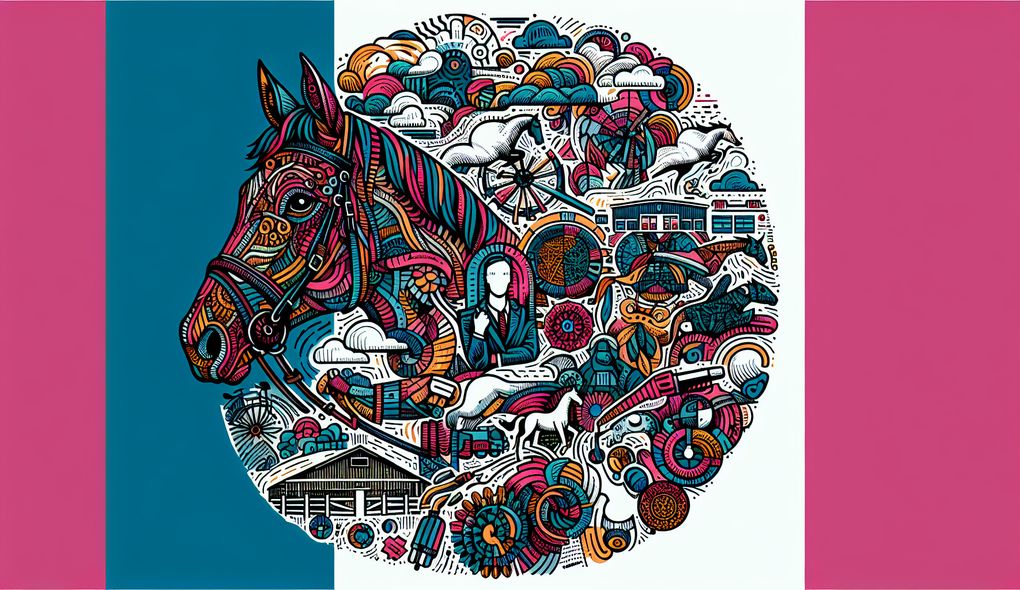Tell us about a time when you had to respond to an emergency situation in an equine facility. How did you handle it?
SENIOR LEVEL

Sample answer to the question:
I remember a time when I was working as an Equine Manager at a large horse facility. One day, there was an emergency situation where a horse got injured and was bleeding heavily. I immediately assessed the situation and called the veterinarian for immediate assistance. While waiting for the vet to arrive, I calmly approached the horse to prevent further panic and tried to apply gentle pressure to the wound to minimize bleeding. With the help of my team, we created a safe and quiet area to keep the horse calm. Once the vet arrived, I provided them with all the necessary information about the horse's condition and previous medical history. Throughout the process, I communicated effectively with the horse's owner, providing updates and reassurance. The horse received prompt medical attention and was able to make a full recovery. It was a challenging situation, but my quick response, calm demeanor, and effective communication ensured the horse's well-being. I learned the importance of remaining calm under pressure and the significance of clear and concise communication in emergency situations.
Here is a more solid answer:
As an Equine Manager at a large horse facility, I encountered a significant emergency situation when one of our horses suffered a severe leg injury. The horse was in obvious pain and distress, and immediate action was required. I took charge of the situation by quickly mobilizing my team and assigning specific roles to each member. One team member called the veterinarian while another gathered essential first aid supplies. I remained calm and provided clear instructions to everyone, ensuring that we maintained a safe and orderly environment. I also communicated with the horse's owner, updating them on the situation and reassuring them that we were doing everything we could to help. Once the veterinarian arrived, I collaborated closely with them, providing detailed information about the horse's medical history and current condition. Throughout the entire process, I demonstrated empathy and patience, understanding the stress the horse and its owner were experiencing. Thanks to our prompt actions and effective teamwork, the horse received immediate medical attention and was stabilized before transportation to a specialized equine hospital. This incident showcased my leadership, problem-solving, and communication skills, as well as my ability to remain calm and compassionate in high-pressure situations.
Why is this a more solid answer?
The solid answer addresses the emergency situation comprehensively and provides specific examples of leadership, problem-solving, effective communication, and empathy. It highlights the candidate's ability to take charge, delegate tasks, remain calm, and collaborate with the veterinarian. However, it can still be improved by adding more details about the candidate's decision-making process and the outcome of the situation.
An example of a exceptional answer:
During my tenure as an Equine Manager, I confronted a critical emergency situation that demanded immediate action and thoughtful decision-making. One afternoon, a horse in our facility suddenly collapsed, showing signs of severe distress. I quickly assessed the situation and determined that the horse was experiencing colic, a potentially life-threatening condition. Recognizing the urgency, I activated our emergency response protocol, which involved swiftly contacting the veterinarian and assembling a team of skilled individuals. Understanding that time was of the essence, I made the decision to administer pain relief medication while awaiting the veterinarian's arrival. I communicated this plan clearly to ensure everyone was on the same page. Meanwhile, I comforted the horse and monitored its vital signs. When the vet arrived, I provided a detailed account of the horse's symptoms, medical history, and the steps we had taken. The vet praised our quick thinking and informed us that our actions had likely saved the horse's life. This experience taught me the importance of prompt decision-making, effective communication, and remaining calm in high-pressure situations. It reinforced my commitment to equine welfare and the value of thorough emergency protocols.
Why is this an exceptional answer?
The exceptional answer expands on the solid answer by providing more context and details about the emergency situation. It highlights the candidate's ability to think critically, make quick decisions, administer appropriate care, and effectively communicate with the veterinary professional. The outcome of saving the horse's life adds a significant level of impact to the answer. It also emphasizes the candidate's commitment to equine welfare and the need for thorough emergency protocols.
How to prepare for this question:
- Review and refresh your knowledge of equine first aid and emergency protocols. Familiarize yourself with common equine emergencies and their appropriate responses.
- Reflect on past experiences in equine facilities where you encountered emergency situations. Consider the actions you took, the outcomes achieved, and the lessons learned.
- Practice describing emergency situations in a clear and concise manner, emphasizing key details such as the actions taken, communication strategies utilized, and the impact of your decisions.
- Brush up on your leadership skills, problem-solving abilities, and effective communication techniques. These competencies are crucial during emergency situations.
- Consider obtaining additional certifications in equine first aid and emergency response. This will showcase your dedication to staying current with the latest industry practices.
What are interviewers evaluating with this question?
- Leadership and team management
- Problem-solving and decision-making
- Effective communication
- Empathy and patience with animals

